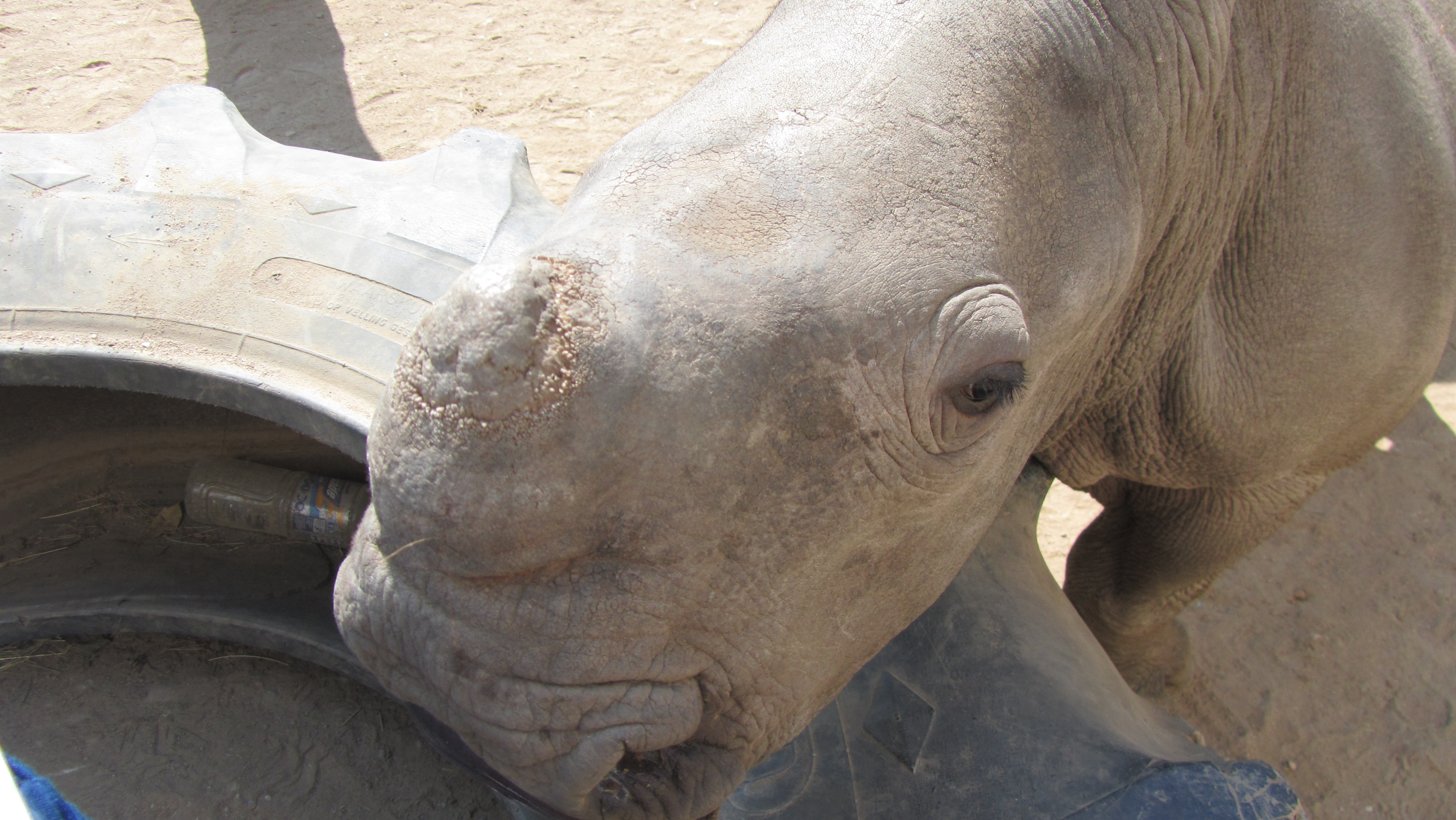
The surge in ivory poaching is seriously hurting South Africa’s rhino population, but one baby rhino left motherless by hunters goes against the odds.
Remember seeing pictures of a poor little orphaned baby rhino, snuggling up to a passing vehicle it mistook for a potential mum? Good news—things are definitely looking up for little the little guy, dubbed Donnie after his rescuer. He’s fitting in well with his two bunkmates, Warren and Oz, at the Care for Wild Africa Rhino Sanctuary, and is an eager eater—not always the case with orphaned rhinos and elephants.
Marnelle vd Merwe, the public relations officer for the Sanctuary, says all three babies are gaining weight steadily. ‘Warren is now 116.8kg, Don 109.8kg and 0z 153.2kg.’ Just about right for a little rhino, though at those numbers, little may be a gentle misnomer.
Vd Merwe says Donnie is acting pretty normal for his kind. ‘[He’s] a real rascal! Very playful and likes to scare you with a mock charge, turning around, pretending nothing happened.’
And Donnie’s not shy at mealtime. ‘He loves his milk and will tuck on your clothes when feeding time is nearing and you take a bit longer than he feels is necessary,’ vd Merwe says.
But this little rhino’s story certainly didn’t start out bright, and it will take him a long time to recover from the trauma he experienced. Debbie English and her dad Don, a regional park manager in Kruger National Park, first spotted Donnie in late July, capturing shots of the tiny rhino rubbing up against the bumper of their grey Hyundai Santa Fe and posting them to Facebook.

Things got even more heartbreaking, and worrisome, when Donnie flat lined for three minutes while being airlifted to the Sanctuary’s facilities in Mpumalanga, causing an emergency landing. The small guy didn’t react well to the sedatives bigger-Don had administered to get him to safety.
Things smoothed out for Donnie once he arrived at his new home, following in the footsteps of another park orphan last year, but he’ll have hurdles to overcome. These young animals often show signs of PTSD when they arrive. It’s no wonder—most witnessed the gruesome death of their parents from shooting, hacking and subsequent disfigurement.
Youngsters get left behind because they haven’t yet grown what poachers are looking for—their horns—but there’s increasing evidence animals still suckling will do just about anything to stick with their mums. This means many wind up the victims of attack themselves, suffering the kind of deep wounds that require an incredibly thick skin and bulk to bounce back from.
While in the wild Donnie would likely have hung around his mum for three years, after he’s weaned off milk—in a year or so— efforts to return him to the wild will begin. Right now he’s about two months of age, so he’s still got plenty of time left in the loving care of his surrogate family, learning how to be a rhino by following the example of his older companion Oz, twice his age, plus expert veterinarians and trained volunteers.
Grazing, brush browsing and wallowing will fill Donnie’s days, activities that may sound a little dull to us humans, but to a baby rhino, are exciting advances. Thanks to places like Care for Wild Africa and other world-renowned facilities, as well as awesome park staff, endangered orphans like Donnie are getting a new lease on life.
